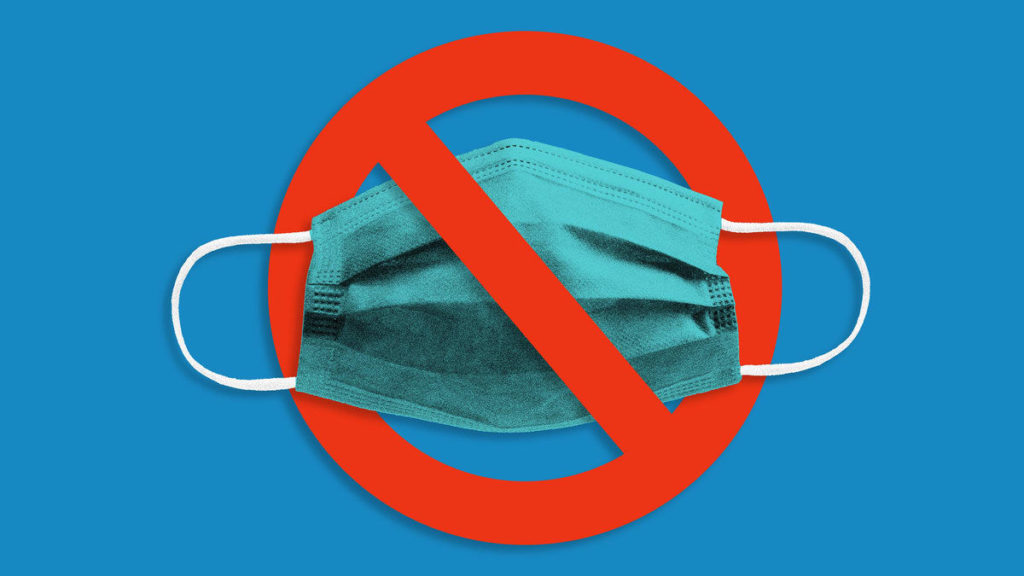
Cache County Council member Paul Borup says that medical experts are by no mean unanimous in their opinions about the effectiveness of face mask mandates.
CACHE COUNTY – Regular messaging from the medical community indicates that wearing a face covering is the most effective preventive measure we can all take to reduce the spread of the coronavirus.
Unfortunately, some medical experts say that conventional wisdom may not be true at all.
Before Mayor Holly Daines’ face mask mandate took effect for Logan residents and visitors over the weekend, the members of the Cache County Council were already discussing myths and misconceptions about mask wearing.
Council member Paul Borup conducted an admittedly unscientific review of recent medical scholarship and found mixed messages about both the practical and psychological benefits of mask wearing in our current situation.
“We all know that there’s been a lot of discussion (about the pandemic),” Borup told fellow council members on July 28. “We’ve received a lot of letters, in which people go on and on about ‘science’ based on reports they’ve read in the press. But what do those reports really mean?”
As far back as 2006, Borup found, some bio-terrorism experts were dubious about the effectiveness of mask wearing.
“Studies have shown that the ordinary surgical mask does little to prevent inhalation of small droplets bearing influenza virus,” according to an article entitled “Disease Measures in the Control of Pandemic Influenza” in the Biodefense Strategy, Practice and Science journal.
That same article argued that “… disease mitigation measures, however well-intentioned, have potential social, economic and political consequences that need to be fully considered by political leaders as well as health officials … Experience has shown that communities faced with epidemics or other adverse events respond best and with the least anxiety when the normal social function of the community is least disrupted.”
Some local business owners, who are now no strangers to economic disruption, are equally doubtful about the benefits of the Logan mask mandate.
They question whether Daines’ executive order was even necessary, coming as it did when COVID-19 infection rates were already trending downward in the Bear River Health District.
Given that the local business community has been suffering from the loss of revenue from tourism since early spring, Daines’ widely-publicized mask mandate also seems guarantied to further alienate visitors while signaling that city officials are tone deaf to business owners’ concerns.
More recent medical scholarship indicates that the benefits of mask wearing in the midst of our current coronavirus pandemic might be more psychological than real. A May 21 article in the New England Journal of Medicine suggested that face masks tend to serve a symbolic role as “… talismans that may help to increase … a perceived sense of safety, well-being and trust …”
But a misguided sense of safety may be as dangerous as the disease itself, according to Dr. Antonio I. Lazzarino of the Institute of Epidemiology and Health Care at the University College London.
In an open letter dated April 20, Lazzarino argues the most practicing epidemiologists agree that there are two potential drawbacks to wearing surgical face masks in public.
The first of those, he wrote, is that “… wearing a face mask may give a false sense of security and make people adopt a reduction in compliance with other infection control measures, including social distancing and hand washing.”
The second problem is that most mask-wearers use them inappropriately, he added.
“People must not touch their masks and must change their single use masks frequently or wash them regularly,” Lazzarino emphasized. “Otherwise, their risk and those of others may increase.”
At Pennsylvania State University, sociologist Daniel DellaPosta believes that the actual pros and cons of mask wearing are seldom considered because a face covering has become just another symbol of affiliation in the ongoing culture war between American liberals and conservatives.
A posting on the website Politico seems to support DellaPosta’s observation.
“Wearing a mask is for smug liberals,” Politico noted. “Refusing to (wear masks) is for reckless Republicans. Prominent people who don’t wear them are shamed and dragged on Twitter by lefty accounts. On the right, where the mask is often seen as the symbol of purported overreaction to the coronavirus, mask promotion is a target of ridicule.”
In his summary to fellow Cache County council members, Borup mentioned that communist officials in China seem solidly in favor of mask mandates.
A recent analysis of the mask debate by Brigham Young University noted that: “The head of the Chinese Center for Disease Control and Prevention has stated that the biggest mistake that Europe and the U.S. were making in tackling COVID-19 was their failure to promote the widespread usage of face masks in public.”
“And you can take that for exactly what it’s worth,” Borup quipped.

